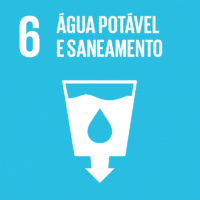Ciência_Iscte
Publicações
Descrição Detalhada da Publicação
Título Revista
European Water
Ano (publicação definitiva)
2013
Língua
Inglês
País
Grécia
Mais Informação
Web of Science®
Esta publicação não está indexada na Web of Science®
Scopus
Esta publicação não está indexada na Scopus
Google Scholar
Esta publicação não está indexada no Overton
Abstract/Resumo
The economic analysis of water uses is one of the main components of river basin management plans (RBMP), as established by the Water Framework Directive. Thus the first-generation RBMP for Portuguese river basin districts (RBD) 6 – Sado/Mira, 7 – Guadiana and 8 – Ribeiras do Algarve included a thorough economic analysis of urban drinking water supply (WS) and wastewater drainage and treatment (WWDT) systems. This paper summarizes results on the role of prices, encompassing the assessment of cost-recovery levels, the discussion of tariff structures, the estimation of residential water-demand elasticities and an appraisal of affordability conditions. RBD7 had the lowest cost-recovery levels, namely in WWDT, but revenue was insufficient to guarantee financial equilibrium in all RBD. As for tariff structures, they were far from complying with the economic regulator’s recommendations or meeting economic efficiency criteria. The estimated residential water-demand elasticities indicate that climate change may have a strong impact on demanded quantity, whereas price has a significant but limited impact on moderating demand, illustrating the need for a combination of price and non-price policies. On the other hand, low price elasticities imply that price increases could be effective in writing off tariff deficits. Average household expenses with water services were still substantially lower than the OECD recommended threshold, although tariff increases need to be done in a way that ensures access to the poorer households.
Agradecimentos/Acknowledgements
--
Palavras-chave
Water economics; Cost recovery; Water supply; Wastewater; Water tariffs; Residential water demand; Affordability
Classificação Fields of Science and Technology
- Economia e Gestão - Ciências Sociais
Contribuições para os Objetivos do Desenvolvimento Sustentável das Nações Unidas
Com o objetivo de aumentar a investigação direcionada para o cumprimento dos Objetivos do Desenvolvimento Sustentável para 2030 das Nações Unidas, é disponibilizada no Ciência_Iscte a possibilidade de associação, quando aplicável, dos artigos científicos aos Objetivos do Desenvolvimento Sustentável. Estes são os Objetivos do Desenvolvimento Sustentável identificados pelo(s) autor(es) para esta publicação. Para uma informação detalhada dos Objetivos do Desenvolvimento Sustentável, clique aqui.

 English
English


